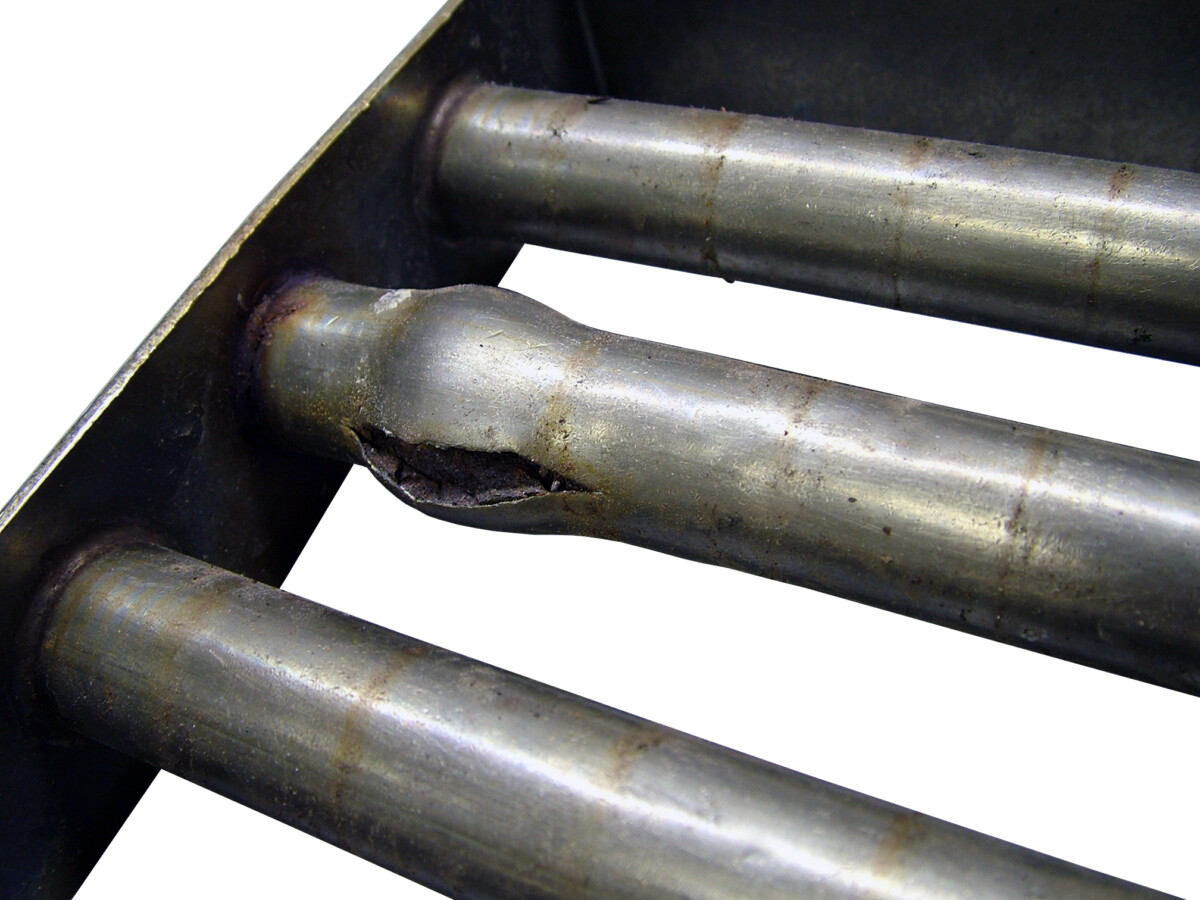Absent external factors, a permanent magnet should lose no more that 1% of its strength over a period of 100 years.
In practical application, many magnets lose strength - or degrade - at a much faster rate than would happen naturally. If undetected, this leaves users open to potential metal events, damage to brand reputation, recalls, and other costly consequences.
Accelerated strength loss can be caused by a number of environmental factors.
What Causes Premature Magnet Degradation?

Heat
Heat above the maximum level rated for the magnet material in your separator will decrease the strength of the magnet. Standard rare earth material from MPI has a maximum temperature of 176°F and standard ceramic material has a maximum temperature of 400°F. Higher temperature materials are available and may have been used in your system. Consult the factory if you have questions on what the maximum temperature is for your system.
Impact
Sharp impacts to the magnet from physical abuse or handling can result in the decreased magnet strength. The magnet material inside your separator is brittle and these impacts can lead to fractures in the material, weakening its strength.
Welding
Welding on or around the magnet can lead to decreased magnet performance. This can be a result of the heat or current generated from the welding process.
Liquid Ingress
If your magnet housing is compromised, moisture can enter the housing of the magnets. This can lead to oxidation of the magnet material which will eventually lead to a weakened magnetic system. If the housing is compromised, the magnet should also be replaced for sanitary concerns.
Detecting Magnet Degradation and Protecting Yourself from Metal Events
The most effective method of detecting magnet strength loss is through regular testing of your magnets - MPI recommends with a pull test. Testing at regular intervals allows you to monitor the strength of your magnet overtime and forecast ahead for upgrades or replacements before a metal event occurs.
Magnetic Pull Test Kit from Magnetic Products, Inc
MPI’s magnetic pull test kit is the most accurate and easiest method to test the strength of your magnets. This easy-to-use, compact gauge fits into tight areas and is battery-operated (four AA batteries included.).
Boasting a capacity of 44 lbs. (20 kg), MPI’s magnetic pull test kit can measure pull in pounds, ounces, kilograms, newtons, or kilonewtons. It can maintain the last reading after release.
Packaged in a hard-sided foam-padded carrying case, this compact unit includes all needed accessories and can be used to test a complete range of magnet types and configurations. The documentation generated from this test can be used for compliance in a Hazard Analysis and Critical Control Point (HACCP) plan or for documentation requirements under the Food Safety Modernization Act (FSMA).
Metal Control Systems Audit
Identifying magnet degradation in an individual magnet can be manageable with internal strength testing, however, a third party evaluation of your entire metal control system - including strength testing of your magnets - helps to ensure that no potential sources of metal contamination are overlooked.
It is MPI’s mission to support food manufacturers in promoting food safety and consumer protection. It’s no secret that Food Safety Modernization Act (FSMA) compliance is a main focus for food manufacturers today, which is why MPI is dedicated to being the best choice in complete metal control for food manufacturing facilities.
In addition to being MPI certified Metal Control System Auditors, our entire Regional Management Team has also been HACCP certified, enabling us to provide the most knowledgeable assistance in the industry with regard to food safety. We believe that earning this certification allows our team to provide more value to our customers, adds an additional layer to our audit program, and demonstrates our dedication to upholding industry standards and education on this important topic.
MPI accomplishes all this through customer education and Metal Control System Audits. These regularly conducted audits provide a comprehensive picture of a facility’s metal control system and provides proof of HACCP compliance and required documentation.
